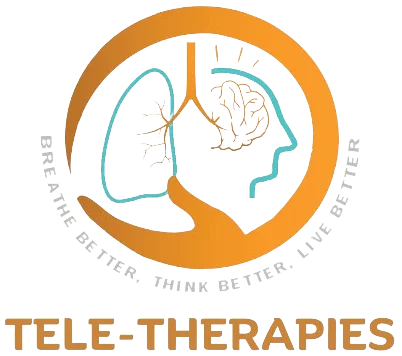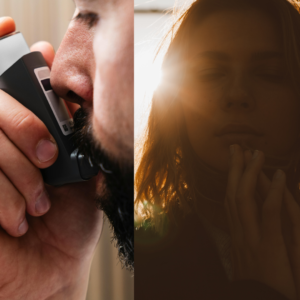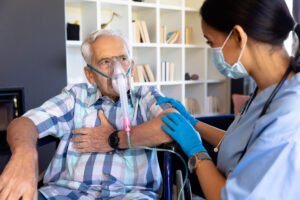Anxiety and Depression Treatment
Anxiety and depression are two of the most common mental illnesses in the United Kingdom. In wider UK, data confirms, 8 in 100 people have mixed anxiety and depression. In England alone, 1 in 6 people have anxiety and depression per week. They can be debilitating and often come with other symptoms like poor sleep, weight gain, and difficulty concentrating. Despite the high prevalence rates of these anxiety disorders, they often are underrecognized and undertreated clinical problems. There is no one-size-fits-all approach to treating anxiety or depression, but there are a few things that many people find helpful.
List of Anxiety and Depression Treatment
There are many different types of medication and therapy that can be used to treat anxiety and depression. Some common treatments include:
● Counseling
● Medication
● Exercise
● Healthy diet
● Get Enough Sleep
● Set Goals
● Get in to a routine
Counseling
Counseling is a popular treatment for anxiety and depression. Counseling can help people learn how to deal with their problems and emotions. Another thing: Counseling can also help people learn how to cope with stress and anxiety. There are many different types of counseling, including cognitive-behavioral therapy, acceptance and commitment therapy, family therapy, and group therapy.
How does counselling work?
Counselling challenges your negative thoughts and support to restructure your thought process.
Negative thoughts or Cognitive distortions can be incredibly harmful when it comes to anxiety and depression. They can make us feel like we are not good enough or that we are a burden on others. This type of thinking can be incredibly destructive and keep us from seeking the treatment we need.
The best way to challenge these negative thoughts is to recognize that they are just thoughts and not reality. Once we have recognized them for what they are, we can start to question their validity. Are they true? Or are they just a product of our imagination? By challenging these negative thoughts, we can start to break their hold over us and begin to recover from our mental illness.
Counseling is often used in combination with medication to treat anxiety and depression. Some people find that counseling alone is enough to treat their condition, while others find that they need medication. Counseling can be expensive, but it may be covered by insurance.
If you are struggling with anxiety or depression, consider talking to a counselor. Counseling can help you get your life back on track.
Medication
Many medications can prescribe for anxiety and depression, including antidepressants, benzodiazepines, and anticonvulsants. Working with a doctor to find the medication best suited to your individual needs is essential. Some medications can cause side effects such as weight gain, drowsiness, or sexual dysfunction, so it is essential to be aware of these potential side effects before starting treatment.
Exercise
Regular exercise can be an effective treatment for anxiety and depression. Exercise releases endorphins, which have mood-boosting effects. It also helps burn off excess energy and stress hormones and improve sleep quality. Exercise can be incorporated into any lifestyle and doesn’t require time or money. Even short bouts of exercise can be helpful.
Check Your Diet
People with anxiety and depression disorders should check their diets. Many foods can worsen the conditions, while others might help improve them. Here are eight foods that people with anxiety and depression should avoid:
- Fried foods: These are high in unhealthy fats that can increase inflammation in the body, worsening symptoms of anxiety and depression.
- Sugar: Too much sugar can disrupt moods and fatigue. It’s also been linked to increased risk for anxiety and depression disorders.
- Processed meats: These are high in sodium and nitrates, linked to an increased risk for mental health conditions.
- Alcohol: Excessive alcohol consumption can worsen mood swings and make symptoms of anxiety or depression worse. For one, using drugs or alcohol can make your symptoms worse. They can also lead to addiction and other mental health problems.
- Artificial sweeteners: These chemicals have been linked to health problems like anxiety and depression disorders.
Get Enough Sleep
People who suffer from anxiety and depression are often told that getting enough sleep is one of the best treatments. Though it is common knowledge that a good night’s sleep is essential for good health, many people do not get the recommended seven to eight hours of sleep each night. A lack of sleep can aggravate the symptoms of anxiety and depression.
People don’t get enough sleep because they watch TV or use the computer in bed. It can be disruptive to the sleep cycle. Another reason people don’t get enough sleep because they have trouble falling asleep or staying asleep. People with anxiety and depression are more likely to have these problems.
You can do things to improve your chances of getting a good night’s sleep. Get in a sleep hygiene rituals.
A. Practice mindfulness with positive affirmation for 10 -15 mins before bedtime.
B. Avoid caffeine and alcohol before bed, and avoid working or using electronic devices in bed.
C. Consider cold shower or ice pack for face and neck to stimulate the vague tone clam and digest action.
D. Maintain a consistent sleep time every day. Don’t panic if you sometime miss few hours of sleep. Compensate by rest breaks.
Set Goals
When it comes to treating anxiety and depression, setting goals is critical. Both disorders can make it difficult to concentrate on anything besides the negative thoughts or emotions impacting your daily life. By setting smaller goals, you can gradually work your way to accomplishing larger ones.
For example, if your goal is to get out of bed each morning, start by waking up just five minutes earlier. Once you’ve been able to stick to that goal for a week or two, gradually increase the amount of time you spend in bed each morning. If your goal is to socialize more, try scheduling one social event per week and increasing that number as you feel more comfortable.
To know more about anxiety and depression check out the education videos on anxiety and depression……
Get into a routine
Getting into a routine can be an effective treatment for anxiety and depression. It becomes easier to stick to a healthy lifestyle when you have a set routine. It includes eating healthy foods, exercising regularly, and getting enough sleep. Having a routine also helps to keep your stress levels under control. It can be beneficial if you are struggling with anxiety or depression.
When your days are structured and predictable, it is less likely that you will feel overwhelmed by your symptoms. A routine can also help you to focus on your goals and priorities. It can provide a sense of stability during difficult times. If you are struggling with anxiety or depression, talk to your doctor about creating a treatment plan that includes a routine.
Conclusion:
In conclusion, anxiety and depression are serious mental health conditions that can be treated. Treatment options include Exercise, Medication, and Counseling. If you are struggling with anxiety or depression, these treatments that we discussed above must be helpful for you.






